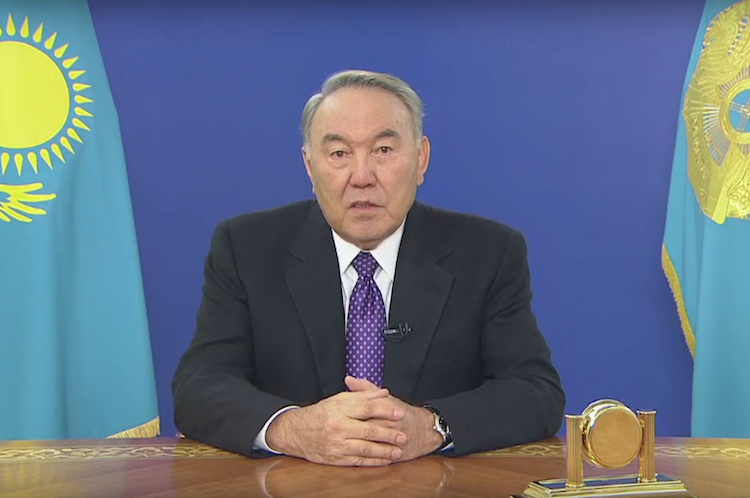
By Devinder Kumar
NEW DELHI | ASTANA (IDN) – President Nursultan Nazarbayev of Kazakhstan whose commitment to international peace and security facilitated the Central Asian state’s election to the UN Security Council as a non-permanent member, has laid out far-reaching plans for government reforms and constitutional changes.
The intention is “to build a more efficient, sustainable, modern system of governance” in the country which celebrated its 25th anniversary of independence from the then Soviet Union in December 2016.
Kazakhstan’s two year-term as a non-permanent member of the Security Council began on January 1, 2017. Revealing his plans in a special TV broadcast on January 25, President Nazabayev said: “The reform programme is our answer to the question in what direction Kazakhstan will move. The answer is clear and consistent: we will move in the direction of democratic development.”
According to experts, the proposed reforms are “very much aimed at the inevitable transition of power from Nazarbayev – born in July 1940 – to someone else”.
The Kazakh President expects the proposed programme to help address three issues: Firstly, it will help to ensure stability of the political system for years to come. Secondly, increasing the role of the Government and the Parliament will provide a more effective mechanism of response to modern challenges.
It is a more complex control system, but also the society has become more complex, said Nazarbayev. He is, therefore, deliberately going to delegate a large part of the powers held by the president. “And I will do it with a single purpose, which is to build a more efficient, sustainable, modern system of governance.”
Referring to a third issue, he said, there is no universal model of government in the world. “We are all in search of it. We have never engaged in copying foreign models of government. We have been trying to find our own, often unique solutions, although there are questions where we follow international experience. Our proposed reform is based primarily on our own experience and needs of Kazakhstan.”
Explaining the logic behind the prevailing system, Nazarbayev said: “Vertical separation of power was necessary to us in the course of overcoming the enormous difficulties of state formation. This principle justified itself.”
All of Kazakhstan’s achievements were accomplished precisely under thar system. “We have built a new state, a new economy, and a new society. The efficiency of our development path proved right in the course of history. Marking the 25th anniversary of our independence, we talked about our achievements, including the work of the authorities, the presidential system.”
But the world is changing. The speed and complexity of social processes are growing in Kazakhstan. Already today there is need to think how to respond to global and regional challenges that will inevitably take place in the coming future.
“Under the new conditions the President’s priority areas will be strategic functions, and the role of a supreme arbiter in the relations between governmental branches. The head of state will also focus on foreign policy, national security and defence,” Nazarbayev said.
The role of the government and the parliament will be significantly expanded. The transformation, according to the Kazakh President, will be conducted in two key areas.
First, a significant part of the president’s functions on regulating social and economic processes will be transferred to the government and other executive bodies. Secondly, the relations between different branches will need to be balanced at a constitutional level. Nazarbayev proposes to strengthen the role of the parliament in terms of its influence on the government.
“It is important to strengthen the role of Parliament in the formation of Government, to enhance the responsibility of the Cabinet before the deputies. The winning party in the parliamentary election will have a decisive influence on the formation of the Government. On this basis, it will be logical, if the government will abdicate authority to the newly elected Mazhilis, not the President, as it was before,” Nazarbayev highlighted.
The reforms also include simplifying the procedure of passing a vote of no- confidence in ministers from the parliament chambers. This will strengthen the control of the legislature over the executive power.
Nazarbayev proposed to transfer the approval of state programmes to the government, so that it will bear full responsibility for those. The government might as well acquire the right to form and to abolish central executive bodies that are not included in it. The project on constitutional reform has been presented for public discussion during January 26 and February 26, 2017. [IDN-InDepthNews – 30 January 2017]
Photo: President Nazarbayev explaining reform programme in a special TV programme on January 25, 2017. Credit: inform.kz
IDN is flagship agency of the International Press Syndicate.











